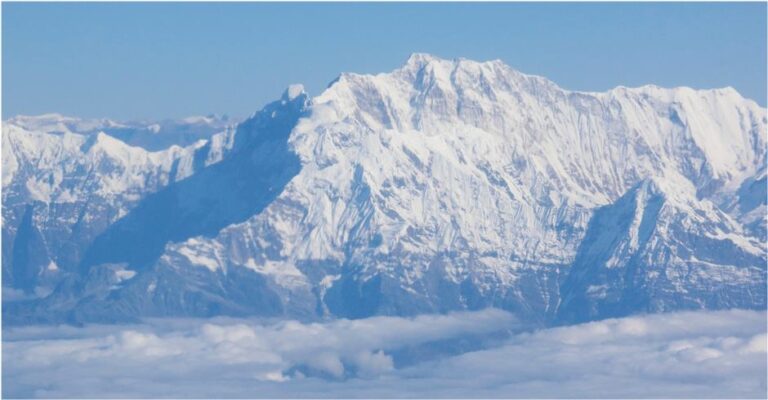
Until some years back, the mountainous ridges were seen with snow-capped during the winter season.
There used to be a huge inflow of foreign tourists here to take joy of majestic beauty of the Himalayas and play with snow. But, the silver-like glittering mountains are now turning to be black rocks arguably due to the effects of climate change. Consequently, the popular tourism hotspots of Sindhupalchowk – Helambu and Panchpokhari – are losing their identity as the prime tourist destinations.
Sindhupalchowk’s Upper Helambu, Panchpokhari and Jugal ridge zone used to be appeared snow-capped from mid-November onward. But, in the recent years, snow fall has become a rare event in the mountains that has direct bearing on the flow of tourists.
Number of domestic and international tourists turning up here for snow fun with sight-seeing has declined of late. It has continued to trigger displacement of the people relying on tourism enterprises.
Kami Lama of Helambu-2 shared that tourism entrepreneurship had been affected when snowfall was becoming rare incident in Helambu region. “It has been a long while since snowfall did not occur in Panchpokhari, Nagitham, Chyochyodanda, Amayangri, Kutumasang, Melamchichyang and Sermathang among others in the district”.
There used to be a huge flow of tourists to the snow-capped areas at Helambu, Panchpokhari and Mude of the district due to geographical diversity.
Surprisingly, Helambu rural municipality has set a goal of producing artificial snow so as to reduce negative effects of climate change. Helambu Chairperson Neema Gyaljen Sherpa said they would pilot this initiative in one place. In recent years, the rise in the temperature coupled with climate change effects have invariably melted snow in the region. The phenomenon has also placed the indigenous farming of the area in crisis.
Last year’s destructive flood can be taken as an example of the effect manifested in high-hill region.
Environment expert Prabhu Budhathoki said it was an indication of something risk to the human community in the long run. (RSS)






